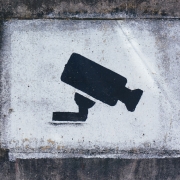 https://dsa-observatory.eu/wp-content/uploads/2025/07/Conference-grid-image.png
1024
1536
admin
http://dsa-observatory.eu/wp-content/uploads/2021/04/DSAO-header-logo-300x257.png
admin2025-07-09 15:06:532026-01-18 20:58:27Call for Papers: The DSA and Platform Regulation Conference 2026
https://dsa-observatory.eu/wp-content/uploads/2025/07/Conference-grid-image.png
1024
1536
admin
http://dsa-observatory.eu/wp-content/uploads/2021/04/DSAO-header-logo-300x257.png
admin2025-07-09 15:06:532026-01-18 20:58:27Call for Papers: The DSA and Platform Regulation Conference 2026The Digital Services Act (DSA) Observatory
The “Digital Services Act (DSA) Observatory” is a project run by the Institute for Information Law (IViR) at the University of Amsterdam, which acts as a hub of expertise on the new EU Digital Services Act Regulation.
The DSA Observatory provides independent scholarly input and facilitates discussions regarding this important legislation, its implementation and enforcement. In particular, the DSA Observatory focuses on fundamental rights and democratic values as a means to confront platform power.
Launched in January 2021, the Observatory has followed the DSA political process closely. It engages with different stakeholders and brings together a broad network of platform regulation experts from academia, civil society, and government.
The project generates regular analysis on the DSA and relevant developments, including blog posts, policy reports, academic articles, and events including expert workshops, panels and conferences.
About The Digital Services Act (DSA) Observatory
The DSA Observatory
The Digital Services Act (DSA) Observatory is a new project run by the Institute for Information Law (IViR) at the University of Amsterdam, which kicked-off in January 2021. The DSA Observatory acts as a hub of expertise with respect to the “Digital Services Act” package presented by the European Commission in December 2020.
Project team
The core project team for the DSA Observatory is composed of prof. Joris van Hoboken, Paddy Leerssen, John Albert, Magdalena Jóźwiak, dr. Ronan Fahy, prof. Natali Helberger, and dr. João Pedro Quintais
Funding and collaboration with the Digital Legal Lab
The DSA Observatory is part of the “Digital Transformations of Decision-Making” research initiative of the Amsterdam Law School and contributes to the activities of the Digital Legal Lab, an interuniversity research centre on law and digital technologies run by a research network between four Dutch universities: Tilburg University, the University of Amsterdam, Radboud University Nijmegen and Maastricht University. This joint research initiative, the Digital Legal Studies Sector Plan for legal research is funded by the Dutch Ministry of Education, Culture and Science (OCW). The DSA Observatory has received funding from the Open Society Foundations and from the Civitates initiative (“Healthy Digital Public Sphere” programme) and the DSA Research Network (a collaboration with the Alexander von Humboldt Institute for Internet and Society and the Hans-Bredow-Institut), funded by Stiftung Mercator.
Where we focus on …
Europe / Brussels
Lorem ipsum dolor sit amet, consectetuer adipiscing elit. Aenean commodo ligula eget dolor. Aenean massa. …
Justice
Aenean leo ligula, porttitor eu, consequat vitae, eleifend ac, enim. Aliquam lorem ante, dapibus in, viverra quis, feugiat a, tellus. Phasellus viverra nulla ut metus varius laoreet. Quisque rutrum. Aenean imperdiet. …
Privacy
Cras dapibus. Vivamus elementum semper nisi. Aenean vulputate eleifend tellus. Aenean leo ligula, porttitor eu, consequat vitae, eleifend ac, enim. Aliquam lorem ante, dapibus in, viverra quis, feugiat a, tellus. …
Politics
Cras dapibus. Vivamus elementum semper nisi. Aenean vulputate eleifend tellus. Aenean leo ligula, porttitor eu, consequat vitae, eleifend ac, enim. Aliquam lorem ante, dapibus in, viverra quis, feugiat a, tellus. …
Research
Cras dapibus. Vivamus elementum semper nisi. Aenean vulputate eleifend tellus. Aenean leo ligula, porttitor eu, consequat vitae, eleifend ac, enim. Aliquam lorem ante, dapibus in, viverra quis, feugiat a, tellus. …
People
Cras dapibus. Vivamus elementum semper nisi. Aenean vulputate eleifend tellus. Aenean leo ligula, porttitor eu, consequat vitae, eleifend ac, enim. Aliquam lorem ante, dapibus in, viverra quis, feugiat a, tellus. …
Contact
The DSA Observatory team can be reached by email at:
dsaobservatory-ivir@uva.nl

















How has the DSA performed in protecting election integrity?
/in AnalysisBy Luise Quaritsch, Jacques Delors Centre
This piece is part of a series with Tech Policy Press featuring articles adapted from selected papers presented at the second DSA and Platform Regulation Conference, an event marking two years since the Digital Services Act came into full effect. It examines how the DSA’s systemic risk framework has operated during recent European elections, and the transparency gaps that still complicate efforts to evaluate platforms’ mitigation measures.
Reclaiming the Algorithm: A call for social media interoperability
/in AnalysisBy Katarzyna Szymielewicz, Panoptykon
This piece is the second in a two-part series on reforming recommender systems for the public good. It examines social media interoperability as an ambitious policy objective that could open the market to competing public-interest algorithms, and outlines regulatory pathways for achieving this— not only through the Digital Services Act (DSA), but also the Digital Markets Act (DMA) and Digital Fairness Act (DFA).
Who speaks and who is heard? Civil society participation and participatory justice in DSA systemic risk management
/in AnalysisBy Mateus Correia de Carvalho (PhD researcher, EUI) and Rachel Griffin (postdoctoral researcher, Duisburg-Essen University)
This post presents the report ‘Who speaks and who is heard?’ on civil society participation and participatory justice in DSA systemic risk management. In it, we examine the early practice of DSA participation to understand how it is unfolding in practice. Drawing on a qualitative empirical study with civil society actors of diverse backgrounds, perspectives, and activities, we traced the mechanisms used by those actors, their perceptions about the usefulness of different spaces of participation, the strategic considerations determining when, where, whether, and how to participate, as well as the obstacles and inequalities hampering meaningful participation. Regarding these inequalities, we propose to understand them as a matter of participatory justice, making some recommendations to improve the overall inclusiveness of DSA participation in systemic risk management.